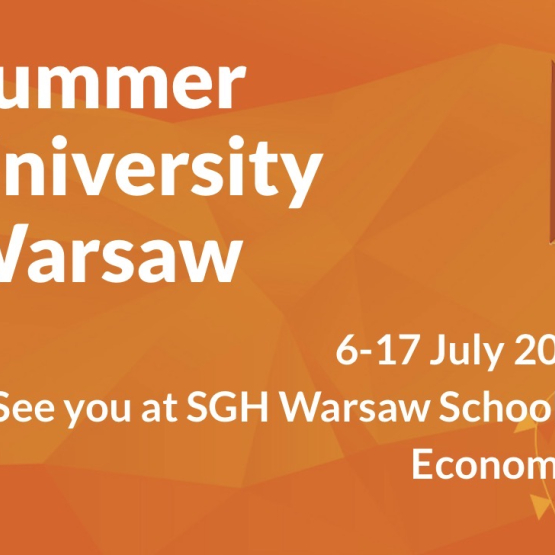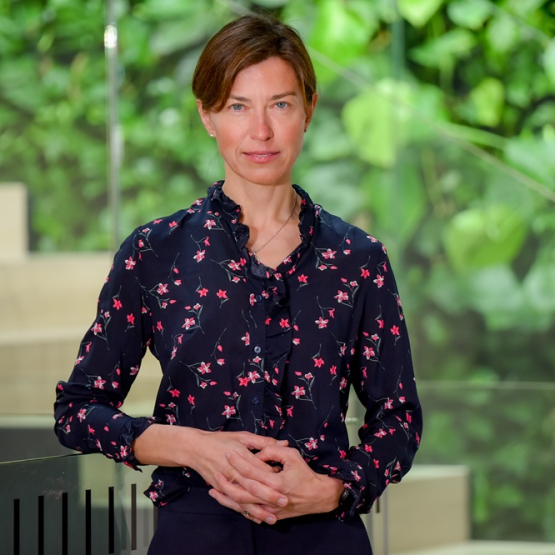The majority of young professionals feel confident about AI, new global research finds

57% of young professionals feel comfortable or very confident about the increasing integration of artificial intelligence (AI) in various aspects of daily life, while only 15% reported feeling unsettled or scared about the prospect, according to new research from CEMS, the Global Alliance in Management Education of which SGH Warsaw School of Economics is a member.
Half (50%) also stated that social media impacts their life positively, while only just over a quarter (27%) feel that social media has a negative impact on their lives.
Overall, 70% of graduates said that they feel optimistic about the future.
A balanced narrative around AI
The global survey was conducted among recent graduates from the CEMS Master in International Management (MIM), who are now in their first year of work, or who have gone onto further study.
Nicole de Fontaines, Executive Director of CEMS, said: “These results reveal that the majority of young people are not just accepting but embracing the increasing integration of artificial intelligence (AI) into various facets of their daily lives. The results reveal a profound level of comfort and confidence, signaling a generational shift in attitudes toward AI.”
“One key factor driving this positive sentiment may be the seamless incorporation of AI into routine tasks, making life more efficient and convenient. Moreover, there is potential for AI to address pressing global challenges. Young people are aware of AI's role in fields such as healthcare, climate research, and social justice initiatives.”
“Through CEMS we aim to foster a balanced narrative around AI. On one hand we try to ensure that the benefits for innovation are fully realized, while also educating students around the need to continuously develop human skills including communication and empathy. We require a future generation of leaders who are able to harness all the advantages of AI, whilst thinking independently, in order to contribute to a more open, sustainable, and inclusive world.”
SGH Warsaw School of Economics CEMS student Anthony Verpoten said: “Through my experiences both in work and academia, I believe in the immense potential of AI as a helpful tool. Not only does it bring strong support for structuring your thoughts, but it also provides you with a tool for precise and creative ideation. As a result, work becomes much more efficient and accurate. Then, it is up to you to use it smartly and not fall into laziness as I think that overreliance on AI is increasingly observed."
CEMS Academic Director at SGH Warsaw School of Economics prof. Mirosław Jarosiński, PhD said: “AI is a powerful, revolutionary tool that is going to change the world. It brings many advantages but also threats. We need to learn how to use it in a positive way to the benefit of our planet. At SGH we encourage students to use AI but there are some limitations. We believe that we still need to teach them e.g. creative thinking. We will also encourage professors to use AI in their teaching. Some of them already do it.”
Salary is top criteria for jobseekers
81% of graduates named salary in their top three criteria that would most influence their decision to take on a new role, followed by work life balance (61%) and opportunities for quick career progression (51%).
The gap between salary and work life balance as a top criterion has widened in the past few years, possibly in response to the current global cost-of-living crisis, meaning salary is an increasingly important factor for jobseekers.
58% said that three to five years is an ideal amount of time to spend in a role before looking for a new one – either in the same or a new company.
About CEMS – The Global Alliance in Management Education
CEMS is a global alliance with a presence on 6 continents, uniting 33 world leading business schools, more than 70 multinational companies, and 8 NGOs who together deliver the CEMS Master in International Management.
The CEMS MIM is a pre-experience joint masters programme. On graduation students will have studied at two Alliance schools, taken part in a business project with a corporate partner and speak three languages. Students develop a global mind set, cross-cultural competence and leadership skills through a combination of coursework, international exchange, and internship opportunities and graduate with a Masters degree from their home school as well as the CEMS MIM.
The CEMS community is committed to the idea that the leaders who will be best prepared for the future will be free and unafraid in an uncertain world, will be humane citizens who can engage fully and think independently, and will contribute to a more open, sustainable, and inclusive world.
For 35 years CEMS has led the way in the development of global management education. Through its unique blend of academic rigor, strategic corporate collaborations, and a commitment to ethical and socially responsible leadership, CEMS prepares the next generation of leaders who resolve to understand deeply the complexities of our time and who are eager to confront global business challenges and opportunities with humility and integrity.
Each year more than 1,300 graduates join our 21,000 strong global alumni network.
Source: CEMS MIM



